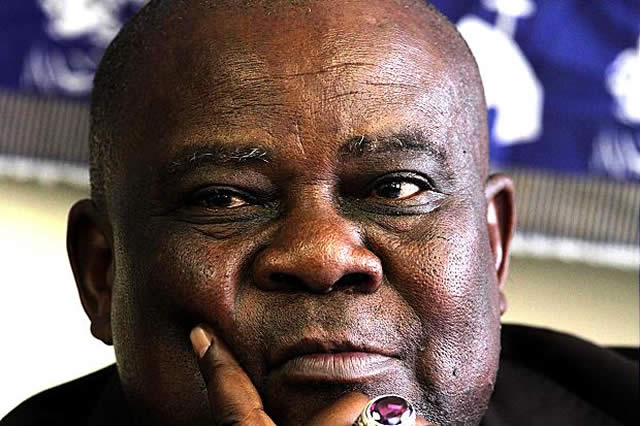
Excommunicated Anglican bishop Nolbert Kunonga, who was last year ordered to pay $428 000 to the Anglican Church after selling the latter’s shares, yesterday challenged the High Court order at the Supreme Court.
BY CHARLES LAITON
Kunonga together with his lieutenants were accused of selling Anglican Church shares soon after splitting from the Church of the Province of Central Africa (CPCA). He was Bishop of Harare when he broke away and imposed himself as the Archbishop of the Province of Zimbabwe.
Judgment in the matter was reserved.
At the height of the property control dispute, Kunonga and his followers Beaven Michael Ngundu, Alfred Tome, Justin Nyazika and Winter Shamuyarira, who were cited as respondents in the High Court matter, decided to dispose of the church’s property in the form of shares it owned in various companies.
The sale of the shares prejudiced the Anglican Church of $427 892, prompting the church to approach the court for recourse, and when the matter was heard before High Court judge Justice Nicholas Mathonsi, Kunonga and his lieutenants were ordered to pay the value of the shares.
Aggrieved with the court’s judgment, Kunonga, through his lawyer Advocate Thembinkosi Magwaliba, approached the Supreme Court seeking to have the judgment set aside, arguing he had the right to use and dispose of the property.
- Chamisa under fire over US$120K donation
- Mavhunga puts DeMbare into Chibuku quarterfinals
- Pension funds bet on Cabora Bassa oilfields
- Councils defy govt fire tender directive
Keep Reading
“The High Court was correct in ruling that the appellant (Kunonga) and his co-trustees had the right of use of the property. However, property such as shares cannot be used without dissipating them,” Magwaliba submitted.
“The usage of the proceeds from the shares, being admittedly for the furtherance of the business of the respondent (CPCA), cannot at the same time result in suing for loss arising from the disposal. To do so is inconsistent.
“Equally, the High Court was inconsistent in finding that the appellant had the right to use the property, but not to dissipate it…The respondent is, therefore, not entitled to recover the property, moreso, where such property was applied for the business purposes of the respondent.”
In response to the application, CPCA lawyer Advocate Thabani Mpofu urged the court to dismiss the appeal arguing the High Court was correct in ordering Kunonga to pay back.
“The learned court judge in the court a quo (previous court) was correct in finding that while the appellant and other trustees had the right of use, they could not lawfully alienate the property until the dispute had been finalised by the court,” Mpofu said.
“The appellant took a well-calculated risk in disposing of the property. The fact that he disposed of the shares prior to the finalisation of the appeal is his own problem.”












